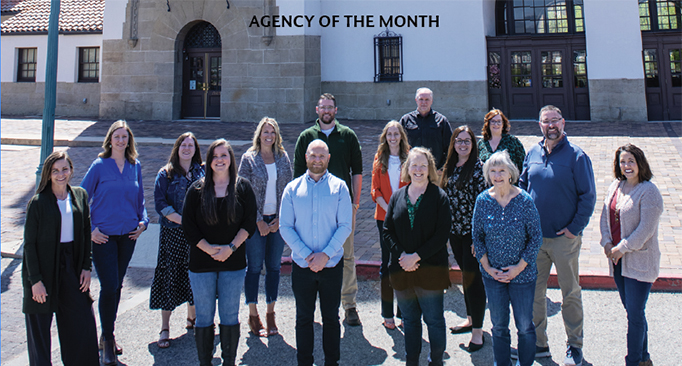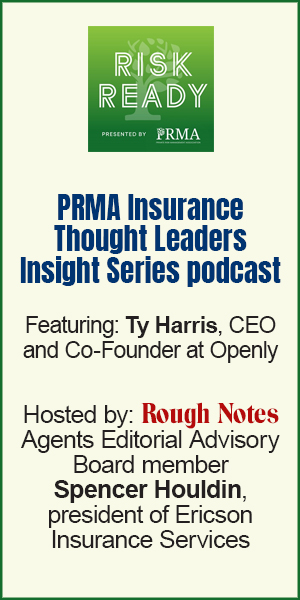Members of the Associated Insurance services team.
Specialty Idaho agency diversifies from
monoline in one industry to all lines for everyone
By Dennis H. Pillsbury
The decade of the ‘70s was a tumultuous one for the workers compensation system. The great compromise that resulted in the creation of workers comp as the exclusive remedy for workplace injuries in exchange for employees giving up the right to sue their employers in most cases was no longer living up to its original promise. So much so that a national commission was formed to look at the compensation schemes in each of the 50 states and, in 1972, recommended reforms. Those reforms resulted in better compensation for employees and a not surprising increase in the cost of workers comp insurance.
Under the implied threat of a federal solution for workers compensation, states moved to implement the reforms quickly and, in doing so, often created marketplace disruptions that were felt over the next few decades, with some states seeing insurers leaving the market entirely.
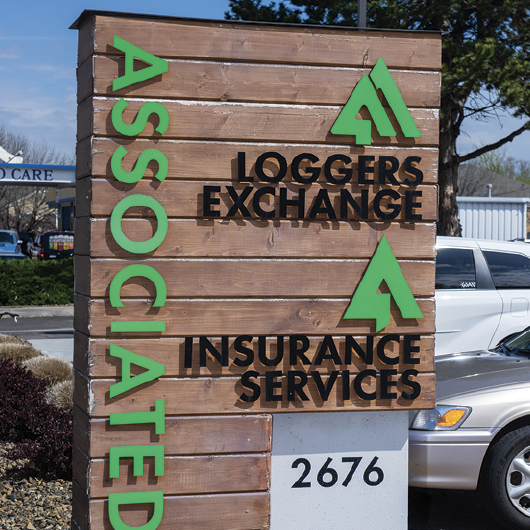
The rising costs that accompanied the reforms caused a number of entities to look for alternative ways to obtain workers comp coverage. This was especially true for businesses that were in hard-to-place industries or businesses that had very few losses because of their loss prevention efforts. These safety-conscious organizations felt that their premium payments were subsidizing the bad actors.
The logging business in Idaho decided to deal with the issue of rising workers comp costs by bringing together loggers known to have a strong safety culture that resulted in reductions in workplace injuries. They formed the Associated Loggers Exchange in 1979 as a non-assessable reciprocal exchange writing workers comp. The success of that venture attracted other loggers who agreed to adhere to the strong safety requirements. By the start of the next century, it became clear that there was a need for an agency to serve as the marketing and customer service organization for the Exchange.
The agency formed
The Exchange approached insurance professional Toni Graham in 2005 and asked her to set up the agency. Associated Insurance Services was established as a subsidiary of the Exchange. She hired Dan Musselman, a former logger himself and safety director for Idaho’s logging trade association at the time, as the agency’s first producer.
Toni soon added service staff, including her son, Bryan, who began working for the agency part time while he was in high school. Bryan learned the agency’s operations from the ground up and, after finishing college in 2010, joined full time, quickly branching into production.
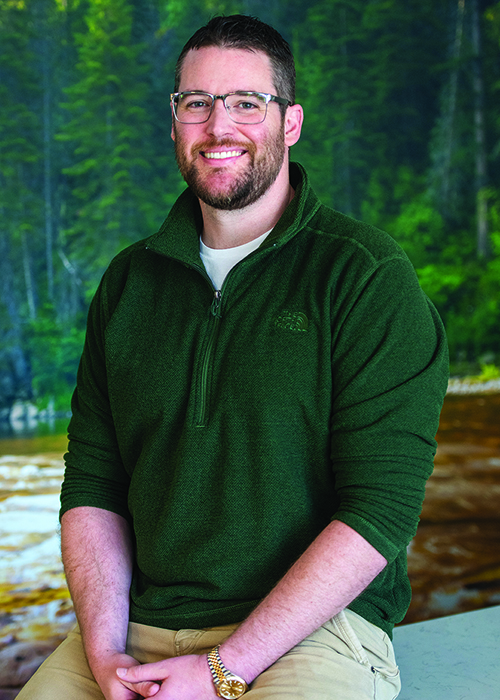
“A big part of the success of [the Axe] program is that it is offered by an agency that is owned by loggers and truly understands what they are going through on a day-to-day basis.”
—Bryan Graham, CIC, CRA
Forest Products Director
Over the next six years, as the agency expanded and diversified into insuring new industries, Bryan became a specialist in insurance for the logging industry and took over management of the forest products market relationships from Toni. He now serves as forest products director, specializing in logging. He also has earned the CIC and CRA designations.
And this brings us to one of the unique things about this agency: Its owners are its customers, so its primary goal is to provide outstanding service to those customer-owners, resulting in a culture of service ahead of sales. A three-person leadership team runs the agency now, having gradually taken over for Toni beginning in 2016. Joining Bryan as part of the management team today are Clint Paskewitz, CRA, commercial risk director, and Emily Koleno, CIC, director of operations, both of whom you will meet shortly.
“I grew up in a household that was centered around logging and insurance,” Bryan says, “so it was natural for me to specialize in those areas. I go to safety meetings and attend industry conferences to keep myself abreast of what is going on in the industry and in the related industries that loggers are dependent upon, especially trucking.
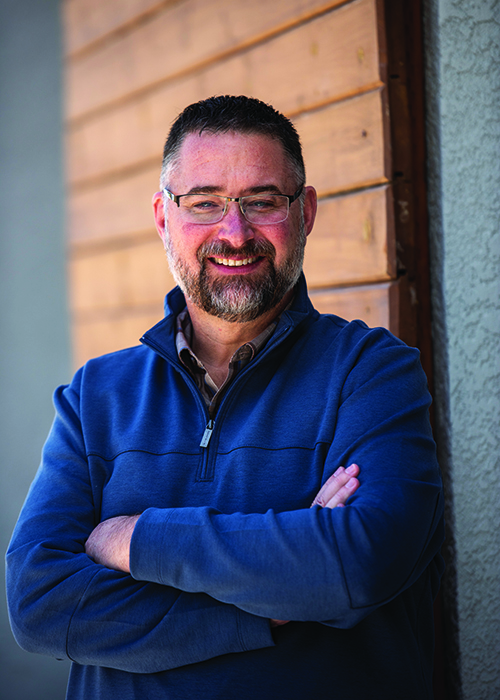
“What sold me on the job was Toni’s passion for doing insurance the right way. It was all about the customer and making certain they got home safely.” —Clint Paskewitz, CRA Commercial Risk Director

“Early on,” he adds, “in addition to making certain that we provided excellent workers comp insurance and service, it seemed a natural extension of that to start looking for insurance companies that could offer a complete package of other coverages to our loggers, as well as to the trucking firms responsible for making certain that their product reached its intended market.
“It became clear to me that we needed to expand our product offerings beyond comp and include all the insurance coverages needed by our customers,” Bryan remembers.
“One of our major efforts as the leadership team over the last eight years has been to
be an employer that we would want to work for.”
—Emily Koleno, CIC
Director of Operations
Creating Axe
By 2010, the agency had hired new producers and expanded its offerings into additional industries. It was also writing package lines of insurance for the loggers by this point, through the few markets that would entertain the exposure. The agency was deepening its logging specialization and at the same time making a name for itself as a generalist, bringing on key carrier partners and entering new segments, including employee benefits and personal lines.
Stability among logging insurance markets was a constant battle, resulting in most logging accounts needing to be remarketed annually.
“So, I began a search to find an insurance company partner that would provide a package of coverages to the logging community,” Bryan says. “I compiled all our information and started pitching the concept. It turned out to be a decade-long project that finally sent me to London. That’s where I found David MacPherson, a Lloyd’s broker with C J Coleman, who was willing to listen.
“Several London underwriters came to visit some of the jobsites to become more comfortable with the industry and its risk management focus,” Bryan adds. “David worked with us to create the Axe Insurance Group in 2022 to provide general liability, commercial auto, equipment, and excess liability for loggers and log truckers in the Northwest.” It is available in Idaho and Montana and will soon be available in Oregon.
“A big part of the success of this program is that it is offered by an agency that is owned by loggers and truly understands what they are going through on a day-to-day basis,” Bryan explains. “We promise that the people they first meet to discuss the program will be there for them throughout the process.
“And, because our people truly are part of their industry, they won’t have to deal with typical insurance crap. We promise to provide quick and efficient quotes, pay claims promptly, and handle their insurance needs like we would handle the needs of a family member. Like our slogan says, ‘You cut the logs, we’ll cut the crap.’
“While the creation of the program took more than a decade, it also is the accomplishment that I most value,” Bryan concludes. “It’s proving to be very successful for our members and our Lloyd’s partners; our first full-year loss ratio was 35% and it stands at around 17% for the second year. We are Lloyd’s coverholders and now have a second syndicate and interest from a third.”
While Bryan was busy trying to stabilize the coverage offerings for the agency’s logging customers, Toni took steps to diversify the agency into other industries by bringing on experienced producers, including Clint Paskewitz in 2010. Clint was a commercial broker and partner with another agency. He also had underwriting experience from a previous job.
Reaching other businesses
“Toni and I met with John Graham, president of Associated Loggers Ex-change, and we laid out a rough vision for the agency going forward. I knew this was exactly what I was looking for,” Clint explains. “My previous agency had significant cultural issues focused on price and premium over service and risk management, which I believed did not align with the direction that would best serve the industry and my clients.”
He adds, “Toni wanted the agency to lead with a servant-leader culture and really become a true partner with their clients; the same model they had for the logging industry extended out to all other industries that were looking to develop a safe work environment and a risk management-centered approach.
“Instead of going after premium and profit, they were asking me to sell our culture, our service, and our ability to help clients lower their total cost of risk,” Clint recalls.
“I loved underwriting—truly developing an understanding of what went into determining the rates for a particular company in a particular industry,” he says. “This would allow me to utilize an expertise I had developed at my job before becoming a broker to help every client understand what was included in their insurance costs and how best to keep those costs down through careful loss mitigation.
“And when I started with the agency, I found myself in a culture where everyone was focused on service,” Clint says. “Our people and our service set us completely apart from the competition. What sold me on the job was Toni’s passion for doing insurance the right way. It was all about the customer and making certain they got home safely.”
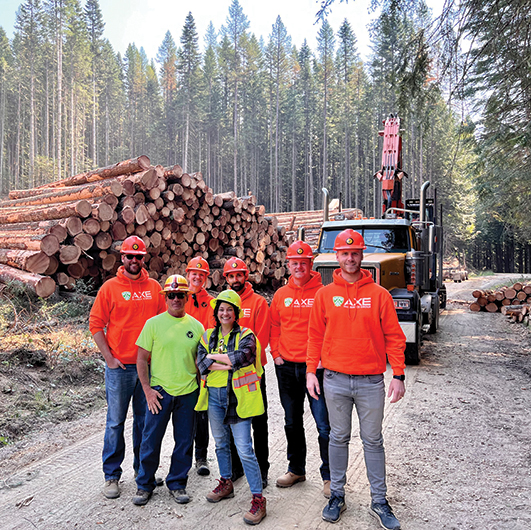
After starting her career in ski resort risk management, Emily Koleno joined the agency in 2012 as a customer service rep, moved into sales, was promoted to operations manager, and ultimately to director of operations when Toni retired in 2020. She manages general business operations, human resources, finance, compliance, marketing, and information technology, and she oversees the employee benefits and personal lines business segments.
“I am learning to delegate,” she points out with a laugh, after I mentioned that it seemed like she had quite a long list of responsibilities. “What’s really interesting,” she adds, “is that I am doing this remotely. My husband got a job in Bend, Oregon, in 2022 and I was able to keep a job that I really love.
“That really displays how much our leadership team cares about employees,” Emily adds. “We’d had some experience with remote working because of COVID and found that some people thrived and maybe were even more productive.
“So, when I told Bryan and Clint about the move and asked what they thought, they said, ‘Let’s give it a try.’ Now, one-third of our 27 people are remote,” she explains.
Great place to work
“One of our major efforts as the leadership team over the last eight years has been to be an employer that we would want to work for,” Emily continues. “We’re focused on supporting and encouraging our people and being transparent in all our dealings with them.
“We encourage them to learn and we pay for and encourage them to get designations,” she adds. “We also recognize the importance of supporting the communities in which they live and work. We recently set up Associated Cares to provide support for people in need and several nonprofits in Idaho. We encourage our people to get involved in their communities by providing them with paid time to volunteer.
To further set the agency apart, a few years ago it aligned with a risk management-focused agency and broker network. “We joined the Beyond Insurance Global Network (BIGN) in 2019 and started some of our people on getting the Certified Risk Architect designation,” Emily explains. “The BIGN dovetailed with our approach of leading with risk management services as our differentiator when we approached new clients.”
Clint says, “After my first BIGN meeting, I spoke with (network founder and Rough Notes columnist) Scott Addis about articles I had cut out of Rough Notes and how I was trying to emulate his method and avoid the commodity trap. He really put it all in perspective for me, noting how important it was to have the right systems in place to make certain we didn’t slip into the trap through inattention.
“We developed Peak360 as our promise to clients,” he adds. “It involves our five-step approach to develop a risk management program: identify, design, execute, procure, and monitor. We also use the IQRM (Intelligence Quotient for Risk Management) as an integral component of Peak360.”
Since joining BIGN, Associated has really taken off, with growth in excess of 15% annually over the last five years. The growth has been helped by focusing on, as Emily describes it, “five carrier partners that have local claims service; stable appetites; minimal employee turnover; and strong, consistent, communicative underwriters.” The firm’s retention rate has held steady at 95% each year.
Rough Notes is proud to recognize Associated Insurance Services as our Agency of the Month. The words of a 25-year insurance veteran who worked with five agencies before joining Associated express best what makes this agency special.
Commercial Account Manager Bonnie Alan, CISR, says: “I love working for Associated because it promotes a culture of insurance expertise, collaborative teamwork, and mutual respect for all. This culture enables employees to provide the very best products and extraordinary service to all of our clients.
“I am just so blessed to be here among this group of amazing people; this is definitely a once-in-an-insurance-lifetime opportunity.”
The author
Dennis Pillsbury is a Virginia-based freelance insurance writer.

